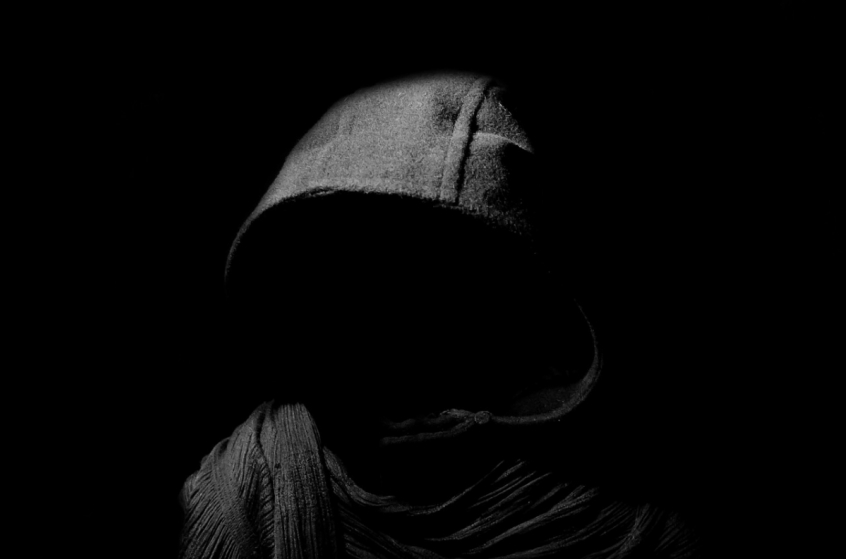I'll never forget the moment a Pentecostal minister suggested we should try to summon the devil. A lot of thoughts ran through my mind at that point: fear, shock, and the realisation that as the on-stage host of the conference at which she'd just suggested it, I was almost certainly about to lose my job. There were audible gasps all around the room; everyone else was having exactly the same reaction.
Thankfully, her words were a stunt, used to make a very important point, very well. She asked everyone in the room – a gathering of over 1,000 Christian youth leaders – to join hands and then, after they had, announced that she was going to summon Satan himself. For the second or two before she explained herself, there was outrage in the assembly, but when one or two bravely cried out 'No!', she calmly asked them why. 'Because he'll come,' came the startled reply. 'Exactly,' she said, 'you think if you summon Satan he'll come; so why is it that when you call on the Spirit of God, you don't believe the same?'.

It was a high-risk strategy, but it largely had the desired effect (or at least, we didn't receive any complaints afterwards). She'd made us all realise that our perspective on the power and reality of God was profoundly wonky. But something else was going on too. Her little trick had tapped into that deep down knowledge that we all have, that evil isn't random, and darkness isn't without agenda. If we believe in the spiritual world, then we acknowledge that there's bad guys as well as good guys. Yet for various reasons, I think we keep that knowledge safely buried, most of the time.
When the prevailing theology of the day centres as it does around love, peace, grace and acceptance, it's easier to keep The Enemy safely out of view. Ideas of spiritual warfare between angelic and demonic forces are a bit weird and socially unpalatable anyway, but when we're less focussed on sin and judgement, there seems to be less need to talk about the architect behind so much of the darkness. In part we've reduced him to a silly caricature, an angry red monster with a pitchfork; in part we've just quietly airbrushed him out of our theology. These days, an Anglican Christening service – old liturgy packed with references to evil and the devil – usually elicits awkward looks from the congregation, let alone the godparents speaking it. We've left him behind.
Yet if we look at Scripture, he does seem like an important figure. He famously engages Jesus directly in the wilderness, and tries every trick in the book to hook into Jesus' humanity and spoil his perfection. When Jesus talks about him, in John 12 v 31, he actually refers to him as 'the ruler of this world'; while Paul calls him 'the god of this age' (2 Corinthians 4 v 4). Various New Testament epistles warn against him: Peter calls him 'a roaring lion, seeking whom he may devour' (1 Peter 5 v 8), John calls him 'the wicked one' who has most of the world under his spell (1 John 5 v 19). This is a pretty serious character, and these many warnings suggest he's a reality of which we should be gravely aware.
Because if you're prepared to look at the world through that spiritual warfare lens, it makes a lot of sense. I'm not suggesting we should see demons hiding around every corner, prompting every individual act of wrong in the world, but perhaps we should see them in the bigger picture. Not just in the unspeakable acts of evil committed by a few individuals (although I'm fairly certain the enemy is involved in plenty of those), but in the unjust processes and dark ideals that so often govern our world. The love of money – and the mistreatment of people as a result; prejudice, which seeks to reduce and dehumanise individuals and disrupt the order of the Kingdom of God; the desire for war and the accumulation of power. These are the things that delight 'the ruler of this world', and they're the hallmarks of his warped version of a kingdom. The Bible repeatedly shows him – from Eden onwards – as a tempter, and it's this weapon of temptation which I believe sits behind so much of the evil in our world.
There's a line in the classic film The Usual Suspects (itself quoted from an old french short story), which seems to sum up where we've got to: "The greatest trick the devil ever pulled was convincing the world he didn't exist." So maybe we shouldn't let him get away with it; maybe we need to talk more honestly and openly about the reality of The Enemy. We should acknowledge that as weird and uncomfortable as it might sound, we are part of two realities, seen and unseen, and that we're caught up in a battle between good and evil that's taking place on a cosmic scale around us, all the time.
That's not the end of the story however. The Bible doesn't only tell us that there's an enemy, but that ultimately God has victory over him. In fact, thanks to the power of the Cross and the strange non-linear reality of time from God's perspective, that victory has already been won. So we don't need to be afraid of our enemy, just aware of him.

I'll never forget the story that now-atheist former preacher Bart Campolo once told about being approached by a deadly-looking gang in the wrong part of town, and naming the demonic influence among them. He looked the leader dead on and said 'I know what you are', before invoking the name of Jesus; the shocked gang scattered instantly. There is a powerful enemy at work in the world, but there is even greater power in the name of Jesus. If we lose our grasp of the first truth, the danger is that we weaken our perspective on the latter.
Martin Saunders is a Contributing Editor for Christian Today and the Deputy CEO of Youthscape. Follow him on Twitter @martinsaunders.













